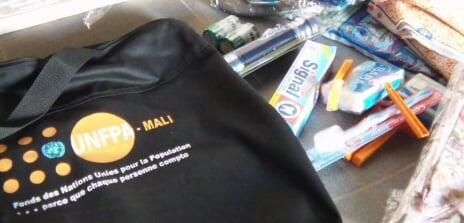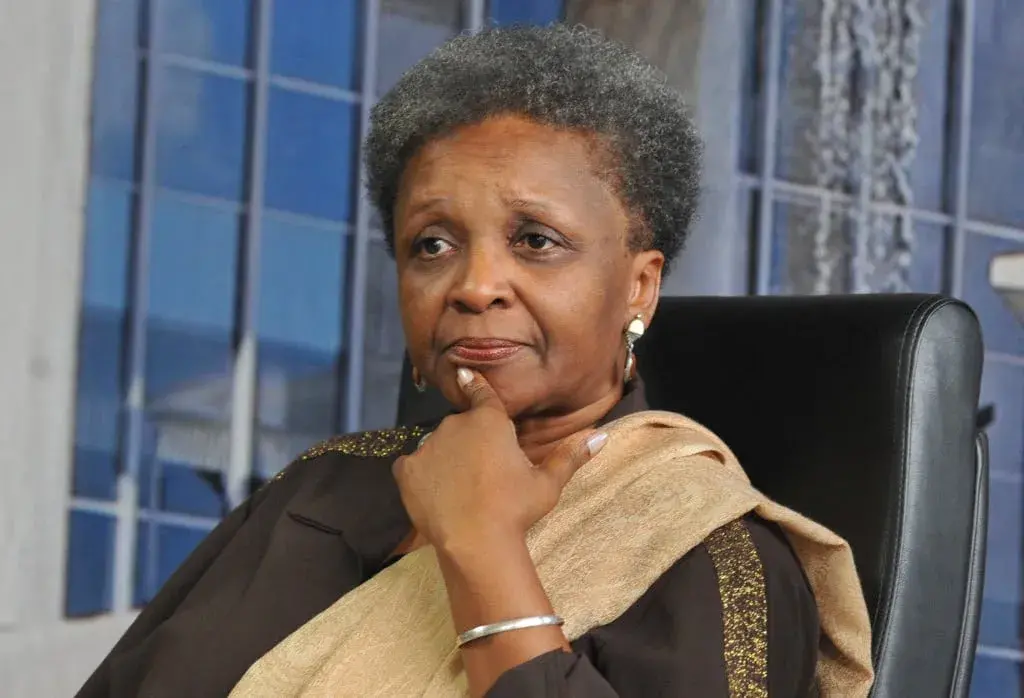Like other organizations working in the humanitarian field, the United Nations Population Fund (UNFPA) provided local populations with dignity, health, reproductive health, female genital mutilation (FGM) and support kits, contraceptives as well as medical equipment during the period.
Moreover, UNFPA gave the National blood transfusion center 5,910 blood pouches in December 2012.
These donations valued at 1.471 billion CFA francs (US$ 2.9million) are meant for internally displaced people, particularly those affected by the humanitarian crisis in the regions of Bamako, Kayes, Koulikoro, Sikasso and Segou.
They will enable to provide quality reproductive health services to displaced people in a context of dysfunctional medical facilities because of the crisis in the country.
In his speech during the presentation ceremony attended by the Minister of Family, Women Promotion and Children Ms. Alwata Ichata SAHI, the UNFPA Country Representative Makane Kane said the support kits for FGM complications will be used to support 960 FGM victims.
For her part, Ms. Alwata Ichata SAHI warmly congratulated the Representative for responding to the call for solidarity that the Government launched on behalf of displaced persons
The UNFPA did a second official presentation of medical equipment, dignity kits, SR kits and ambulances to the Government of Mali, all worth US$ 208,892,463 FCFA (US$415,000).
This second UNFPA donation to the Government focused on the provision of emergency Reproductive Health kits for the regions and health districts of Segou, Mopti, Gao, Timbuktu and Kidal that were controlled by the Tuareg rebels and armed Islamist groups.
At the event, the Minister of Health Mr. Sumana Makadji emphasized that "UNFPA interventions showcase the interest the organization attaches to fight for the well-being of children and woman, a well-being which is a major concern for Mali."
Gender Based Violence (Gbv), another UNFPA area of intervention in Mali
Within the framework of the Gender-based violence (GBV) sub cluster, UNFPA tries to take over rape cases by handing out rape kits, post-rape care and PEP kits ( post-exposure prophylaxis).
The health component for which UNFPA has made significant financial contributions is one of the four pillars of the response to GBV. The other three are the security, the participation of associations and centers, and the judicial component.
Thus, UNFPA’s advocacy work with Malian authorities on steps to adress cases of abuse following the crisis in the North led to the signing of a circular by the Malian Ministry of Justice.
In October 2012, the Minister of Justice, Mr. Malick Coulibaly, told the UNFPA Representative Mr Makane about a circular which states that "... violations of the human rights of women in situations of armed conflict are against the founding principles of the rights of the human being.... and all violations of this kind, including and in particular murder, systematic rape, sexual abuses, require particularly effective responses ...".
Reacting to the signing of the circular letter, UN Women /Mali Country Director Mrs Rachelle Djangone MIAN "expressed gratitude to the UNFPA / Ministry of Justice for the important work that has been done. This is an important gateway for the damages suffered by the victims. I am particularly pleased as this will facilitate the work on the ground. "
A capacity building workshop for trainers on GBV prevention, coordination and management in Mali was then organized. On this occasion, UNFPA intensified advocacy with representatives of the Ministry of Justice for the judicial component, as one of the four pillars of the response to GBV, to send a strong signal.
In this context, UNFPA gave the Justice Ministry a lot of hardware to enable the courts to begin identifying and handling cases of rape and other human rights abuses.
In line with a holistic approach to human rights, UNFPA also contributed to the training of 373 soldiers of all ranks on “Sexual violence in armed conflict” that the Mali Armed Forces organized with financial support from the Dutch cooperation
The situation in Mali is going back to normal following the military intervention of French and African troops to secure the entire territory. The administration has been deployed on the whole territory accompanied by the gradual re-establishment of social services. On 28 July 2013, elections were held to choose a head of State who will continue this work with development partners including UNFPA.




